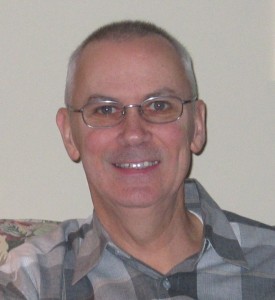Chemo maintenance – end of cycle 15
October 4th was the first anniversary of my Bone Marrow Transplant, a significant medical milestone. Although it seems like forever ago, I recall Dr. Khaled (my Transplant physician) telling us that I would not feel “like my old self” for one year. At the time, I was devastated – a whole year to recover from this thing? Fortunately, I was able to rebound a little quicker than his prediction – I was feeling much improved after 6 months, and approached feeling “like my old self” at 9 months. Not that everything is back to the way it was… some changes are permanent and there’s nothing I can do about those: tire easily, take power naps every day or two, sweat easily from mild physical exertion, overheat quickly in direct sunlight or on days when the temp exceeds 80.
In general, however, I am feeling good and think that I have settled into a consistent pattern with regards to my health.
NEWS FROM MY CLINIC VISIT
Next week will mark the end of the 15th 3 week cycle of chemo maintenance since my Transplant. Yesterday Irene and I met with Dr. J and Tara, the Oncology PA to discuss my progress. There were no surprises in my lab work, but I complained about the weekly blood tests. I have developed scar tissue from all the needle work in the veins at my elbows. For the past few weeks the lab techs have drawn blood from the back of my hands rather than from my arms. At this point, because we think we understand how my WBC and ANC counts react to the Neupogen injections (see previous post for details), Dr. J extended the blood work from weekly back to monthly intervals. I am thankful for that change.
This first birthday of my new immune system also marks the point at which I begin getting re-vaccinated for all those childhood diseases. I was aware that my clinic visit yesterday would include vaccinations, but I guess I had not imagined getting 5 inoculations on the same day. OUCH! Two in the left arm; three in the right. I am sore. Tetanus and Diphtheria, Influenza, Hepatitus B, Pneumococcal Polysaccharide, Polio. And we’re not done yet. More vaccination appointments over the next few months.
We asked Dr. J if any immune system restrictions would prevent me from visiting son Lieutenant Larry and his wife Kim in South Korea next summer.
“As long as your disease stays in remission” [a threat which will always loom over my head] there is no reason you can’t travel to Korea.” So Irene, Kim’s mother Karen, and I are planning on an early-summer 2009 trip to Seoul.
MEDICATION CHANGES
In August I discontinued all of the medications for neuropathy in my feet… with no noticeable effect. My drug list is now the shortest it’s been in 2 years – I’m down to taking only 5 pills a day (from a high of over 20 post-Transplant). One of those pills is a chemotherapy drug (Revlimid) and the rest control side-affects.
SIDE EFFECTS
Neuropathy – This feeling of swollen feet is at a stable state – has not gone away entirely, but is not getting any worse. Some days are better than others depending on where I am in the chemo cycle, but this level is quite tolerable.
Neutropenia – My chemo drug Revlimid reduces your WBC (White Blood Cell) and ANC (Neutrofill) counts, key indicators of the strength of your immune system. We’ve now been through four months of 3 week cycles where my counts drop, I give myself a white blood cell booster shot (Neupogen), counts recover for 4 – 6 weeks, and then they drop again. This cycle will continue indefinitely.
Of the life-style risks associated with Multiple Myeloma, germs and infections are right there at the top of the list (due to my compromised immune system). While I no longer take extraordinary measures to avoid infections, the clinic staff once again made it clear that if I am feeling sick they want to hear from me immediately, or if I run a fever that reaches 100.5 degrees I am to deliver myself to the UofM Emergency Room.
NEXT STEPS
My revised medical routine now includes a handful of pills a day, lab and blood work every 3 weeks, and a visit with the clinical staff every 3 months. Sprinkled in the schedule every 6-8 weeks is a 2 hour infusion of the bone strengthening drug Pentamidine. As long as the Myeloma remains in remission this routine is only minimally intrusive into my newly retired lifestyle.
Unless there are some dramatic changes [which are unlikely] my next blog posting won’t be until early 2009.
That’s the latest news from Hamburg.
-larry
